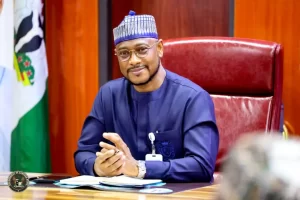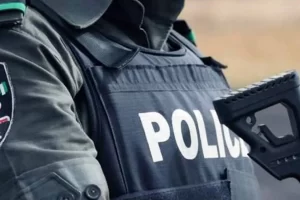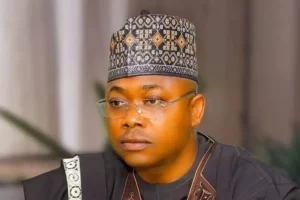The inability of President Muhammadu Buhari’s regime to address past election-related violence and abuses threatens the safe conduct of the 2023 general elections, Human Rights Watch says.
“The elections are set to take place against a backdrop of impunity for abuses by security forces and other actors during the previous general elections in 2019,” the HRW noted in its statement.
The 2019 election was conducted under the APC regime of Mr Buhari. His regime and security apparatuses will also be in charge of the February 25 and March 11 elections as in 2019.
It explained thay ‘there have also been security threats from multiple groups across the country, including violent gangs in the northwest and groups in southeastern Nigeria who have been trying to undermine the elections.”
According to the human rights watchdog, Nigeria’s elections have historically been fraught with violence and other abuses, however, cited the election of Mr Buhari in 2015, the first transition of power to an opposition party since the country’s democratic transition in 1999, to be largely peaceful.
“But the 2019 election was marred by violence from security forces, including the army, and thugs acting on behalf of politicians,” the rights watchdog stressed.
According to the group, this month’s elections face uncertainty as security forces and other actors who committed various forms of electoral abuses and violence in the last elections have not been punished as stipulated by law.
“There is a thick veil of violence shrouding the 2023 elections that undermines people’s fundamental right to vote,” said Anietie Ewang, a researcher at Human Rights Watch. “It is important for the authorities to swiftly restore public confidence in their ability to hold those responsible for electoral violence accountable and ensure the safety and security of all Nigerians.”
The group added that there has not been much progress in efforts to get Nigerian authorities to ensure justice and accountability for election-related violence. In March 2019, the Nigerian Army gave a committee two weeks to present its conclusions after receiving reports of violence and killings allegedly committed against officers during the elections. The authorities have not released any information regarding the committee’s work, conclusions, or recommendations four years later.
The Independent National Electoral Commission (INEC) also announced in 2020 that 18 people would be prosecuted in seven different states for crimes committed during the 2019 elections, including stealing and destroying election materials, acting disorderly, possessing ballots and Permanent Voters’ Cards without a licence, and purchasing votes at polling places on election day.
INEC faces difficulties because it could prosecute offenders, authority to properly investigate the offenses rests with the security agencies who have the jurisdiction to conduct investigations, this then places restrictions on the commission’s ability to provide justice and accountability for electoral offenses.
The commission claimed that as a result, instances involving election breaches have not been handled with sufficient effectiveness.
According to Human Rights Watch, law enforcement officials should immediately and thoroughly look into violence and threats against candidates, voters, election officials, and others and and prosecute the accused.
Disclaimer: No copyright infringement intended. All rights and credits reserved to respective owner(s).
Disclaimer: No copyright infringement intended. All rights and credits reserved to respective owner(s).























Add Comment